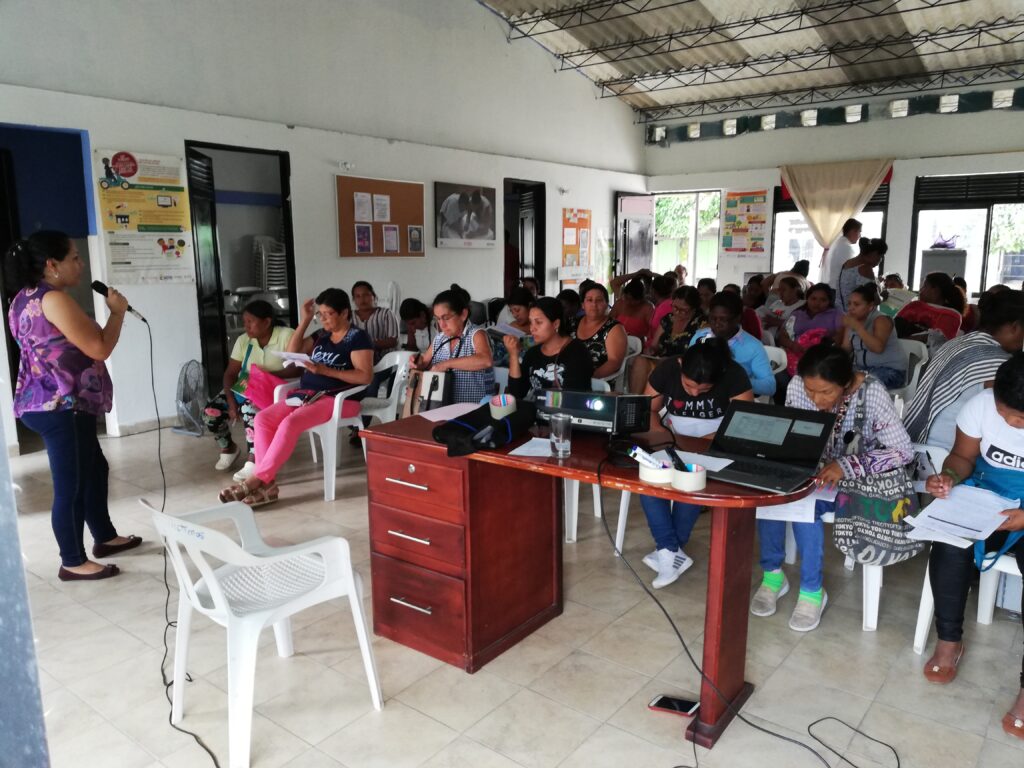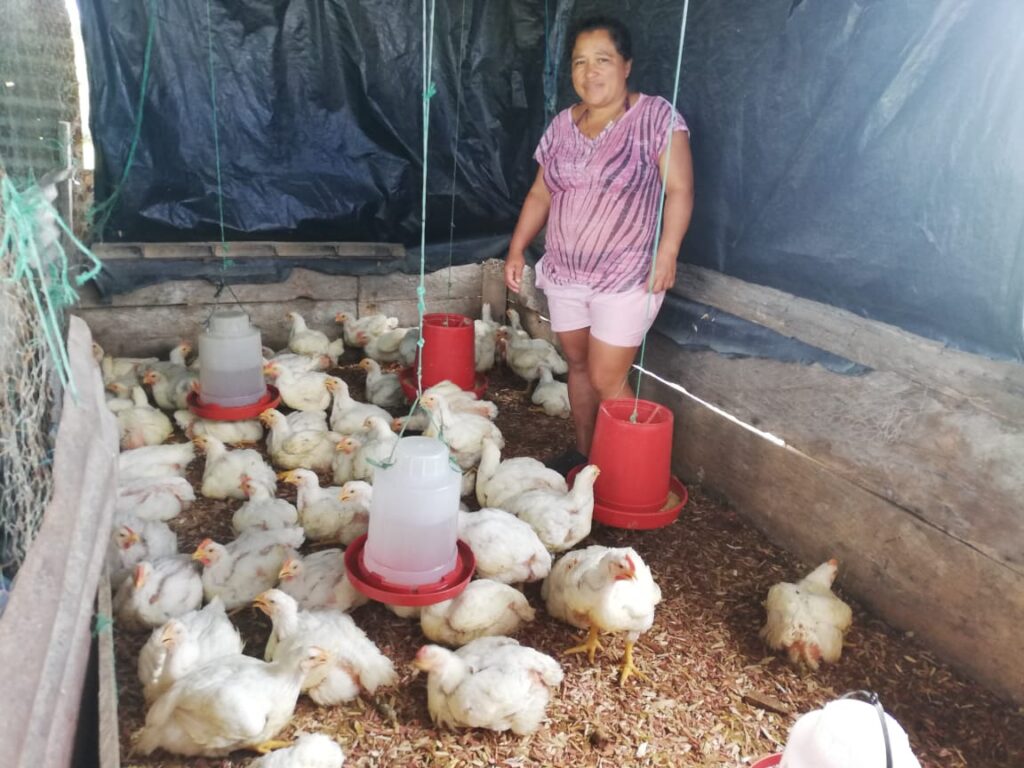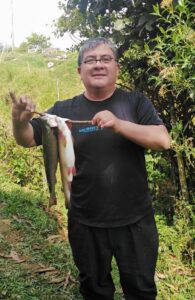
Comunica held workshops and developed teaching materials to ensure the sustainability of local economic development activities
As in many countries, Colombia’s extractive sector has traditionally operated in a cyclical manner, mirroring that of the oil and gas industry, where companies spend significant time in a geographical area, and once work is complete, leave the region. As part of “Comunica” – the Building Extractive Sector Governance in Colombia Project funded by Global Affairs Canada – team leaders quickly recognized that sustainability in local economic development was vital for residents in poor, vulnerable communities to benefit from the extractive sector. Furthermore, remote municipalities and local government leaders lacked the tools and skills to operate beyond the boom-and-bust cycle of the sector.
By diversifying products and identifying commercialization opportunities in the market, the project reduced exclusive dependence on extractive sector companies for economic livelihoods.
Creating sustainable local economic development
Over the course of six years, Comunica identified 11 underserved commodity producing organizations in Antioquia and Putumayo to participate in regional marketing networks. The organizations worked together to build the necessary skills to bolster local economic development.
Comunica’s Regional Manager of Sustainable Development, Percy Garcia, said that at the infancy of the project, it was challenging given that many producers often lacked basic literacy skills.
“We had to prepare them to do business,” said Garcia. “It was difficult for us to teach them the business environment and that they can make profits with their current activities.”
Percy Garcia, Regional Manager of Sustainable Development
Garcia reflected on the success of local poultry producers in Orito, Putumayo. Comunica organized 38 families to equip them with knowledge and information about the productive and commercialization process. Typically, Garcia said, the families would raise 10 to 12 chickens and trade them among their neighbours. Teaching materials developed by Comunica enabled poultry producers to build learning skills that translated into the practical ability to raise and store chickens, and in some cases, sell upwards of 300 chickens to neighbouring municipalities.
“They were so happy. At the end of the project, after almost two years, they ended up with a selling point.”
Focus on sustainability
When Comunica began working with Colombians in these remote regions, there was a sense of skepticism from participants rooted in misunderstanding of the scope and sustainability of the project’s work. Garcia said that residents, based on previous work by organizations in the region, became accustomed to multi-national corporations arriving and working in the area on short-term contracts without providing tangible or sustainable outcomes for residents.
“They would work on local economic development activities for less than a week and then they just forget them,” Garcia explained. “Most of the projects we worked on were for more than two years.”
He said the organizations, and people, came to understand that Comunica would be spending years, not weeks, working to develop local economic development in carefully selected areas, specifically communities that were abandoned and poor. Part of the project’s work to ensure long-term success for organizations was the development of educational and training materials transferred to the National Learning Service of Colombia (SENA) for continued use.

A local poultry producer in Putumayo
There was also significant focus placed on educating younger generations within families who were responsible for supporting the family financially. Garcia said that an important part of creating longevity and sustainability for local economic development was having the upcoming generation of Colombians attend training and teaching sessions in addition to their parents.
“The idea was to support low-income families in these impoverished areas of Colombia.”
Adapting among COVID-19 impacts
The COVID-19 pandemic brought unforeseen challenges to Comunica and leaders quickly recognized it was essential to pivot educational activities to be accessed online.
“In the end we developed a teaching handbook, and we used this material to start another 10 organizations,” Garcia said. “With the remaining 10 we were able to do everything online.”
As the project closes, Garcia said that he is still in contact with organizations and families that benefitted from Comunica’s novel approaches to local economic activity with proven sustainability to improve low socio-economic status areas of Colombia outside of the extractive sector.

